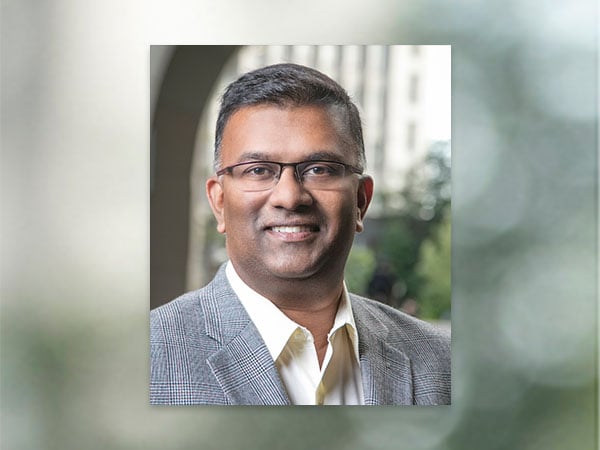For Berkeley EMBA student (and now podcast co-host) Manoj Thomas, taking the GMAT meant taking a standardized test for the first time in nearly 20 years. "It did stress me out in the beginning," he admits. In this MBA application tips podcast, he shares his experience and exchanges tips with Susan Petty, admissions director for the Berkeley MBA for Executives Program.
They discuss exam requirements for the executive and evening and weekend MBA programs at Berkeley Haas—and share insights to help you prepare for the GMAT, GRE, or Executive Assessment. Listen to the podcast:
Or read excerpts from their conversation:
 Manoj: Susan, what are the exam requirements for the Berkeley MBA program?
Manoj: Susan, what are the exam requirements for the Berkeley MBA program?
Susan: We have three options for our applicants. If you are applying to the Evening & Weekend MBA program, you can take the GMAT or the GRE. If you are applying to the Berkeley Haas MBA for Executives program, you also have the option of taking the executive assessment.
We're looking to really understand that you have the academic, the quantitative capabilities to handle the rigor of the program. Manoj, which exam did you take?
Manoj: I took the GMAT. What is the Executive Assessment? I don't remember having an option like that last year when I was applying.
Susan: We're really pleased to offer this to our more seasoned professionals. if you have had quite a bit of work experience, we recommend the executive assessment as a way of testing your MBA readiness. It's a shorter exam, and it is really designed to make sure you can handle the program and the quant requirements.
Manoj: How important is the test score? Is that the single most defining factor?
Susan: No. The test score is just one data point that we look at. We're looking at your application holistically, but we're looking for more of a recent example of your quantitative abilities with that exam. If you have a strong quant background in the work that you're doing, or you have an undergraduate degree in an area that's very quant-heavy, then that makes the score less important. But if you have more of a humanities background, we might be looking a little more closely at that exam score.
Want more GMAT advice? Download our free tips
Manoj: Do you prefer one exam over the other?
Susan: We consider them all equally, so whichever exam you can do your best on, we recommended that you take that exam. And, whether it means taking practice tests or taking a prep-course, we highly recommend that you prepare—we just want you to do the best you can. How did you prepare, Manoj?
Manoj: I did about 30 to 40 hours of preparation, because I only had about a month to submit my GMAT score. I took the practice exam once, and then I ordered a test preparation course, a set of books. That gave me a lot of tips on how to approach some of the problems. I think that helped a lot, and it was able to improve my score significantly.
Susan: It had probably been a long time since you had taken a standardized test. How did you feel about going back and sitting for an exam again?
Manoj: Well, it had been about 20 years, and it stressed me out in the beginning! But I think doing that sample test helped. It gave me some baseline and I could see that I was able to improve. It got me into quantitative thinking mode.
Susan: Great. I hear that all the time that people kind of dread the preparations and taking the exam, but it ends up paying off when they're in the classroom.
Manoj: Susan, if someone feels their score is not up to par, what do you suggest? Do you suggest taking the test again?
Susan: For people worried about their score, we suggest they reach out and schedule a personal consultation with us. We're happy to do a quick resume review and a test score review and let them know what we think their next step should be.
Manoj: Thank you for sharing all these tips!
Susan: Thank you, Manoj. It was a pleasure to catch up with you.
For more application tips, see our guide to crafting your best MBA application, and listen to our podcast on MBA application essays. And, if you want more GMAT prep tips, get our free ebook Avoiding the GMAT Blues.










